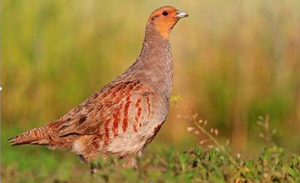World Wildlife Day VIII edition
World Wildlife Day on 3 March
The World Wildlife was established by the United Nations General Assembly in 2013. The focus this year is on "the recovery of key species for the restoration of ecosystems". ISPRA has been involved for years in research projects aimed at promoting the conservation of some threatened or endangered animal species, following the Europena Straegy for the Biodiversity 2030 .
Here some activities carried out by ISPRA, in the recent years, on this topic.
- https://development.isprambiente.gov.it/en/archive/news-and-other-events/ispra-news/2022/03/world-wildlife-day-viii-edition
- World Wildlife Day VIII edition
- 2022-03-03T00:00:00+00:00
- 2022-03-03T23:59:59+00:00
- World Wildlife Day on 3 March The World Wildlife was established by the United Nations General Assembly in 2013. The focus this year is on "the recovery of key species for the restoration of ecosystems". ISPRA has been involved for years in research projects aimed at promoting the conservation of some threatened or endangered animal species, following the Europena Straegy for the Biodiversity 2030 . Here some activities carried out by ISPRA, in the recent years, on this topic.
- When Mar 03, 2022 (GMT+0 / UTC0)
-
Add event to calendar
iCal
The LIFE Perdix project aims at the recovery and conservation of the Perdix perdix italica, declared extinct in the wild. The main actions of the project are: genetic analysis, breeding in captivity and the reintroduction of a viable population within the Natura 2000 site of the Mezzano Valley, Special Protection Area (SPA IT4060008) in the Po Delta.
The LIFE Egyptian vulture aims to promote the conservation of Neophron percnopterus, a small migratory vulture which is the most endangered species in Italy. LIFE is carried out in collaboration with Spanish partners who work for the conservation of the population present on the Canary Islands. In Italy it is estimated there are 12-15 pairs of Egyptian vultures, distributed between Sicily, Calabria and Basilicata. As part of the project, ISPRA is responsible for the surveillance of the reproductive sites present in Italy and of the subjects in migration, the management of food supply points, the activities to combat the use of poisoned food, the release in nature of reared subjects. in captivity. Other LIFE actions include the safety of medium voltage power lines.
The "Aquila a-LIFE" project aims to increase the area of Bonelli's Eagle in the western Mediterranean and the recovery of the species now classified in Italy in danger of extinction. Coordinated by GREFA, a Spanish NGO that deals with nature conservation also through the recovery of fauna in difficulty and captive breeding programs, the project started in October 2017, has a duration of 5 years and involves other Spanish and French partners. In this context, ISPRA is responsible of the actions for the reintroduction of the species in Sardinia, where it probably became extinct in the nineties. The project was supported by the Region of Sardinia which, with the Regional Forestry Agency for the Development of the Territory and the Environment of Sardinia and the Regional Forestry Corps, is actively involved in the development of the project.
The Life Ponderat project - coordinated by the Lazio Region - aims to eradicate some alien and invasive plant and animal components in the island ecosystems of some islands of the Ponzi archipelago, to the benefit of species and habitats of community interest. The eradication and control will concern alien animal species (predators such as rats, wild domestic herbivores such as goats) in order to restore natural insular communities and habitats and improve the reproductive success of native species, primarily Procellariforms such as shearwater greater Calonectris diomedea and the lesser shearwater Puffinus yelkouan, our albatrosses.
The Lesser Kestrel Falco naumanni is a small bird of prey with conservation priorities at European level, whose populations are concentrated in the Mediterranean area. The species underwent a consistent numerical decline over the course of the twentieth century. Currently, it shows an increasing trend, also thanks to the contribution of numerous LIFE projects dedicated to it. Recent models indicate that the Mediterranean region will play an important role in a possible future expansion of the species northwards. However, the persistence of these generally fragmented and small populations is threatened by a number of factors, including the lack of safe nesting sites. The LIFE FALKON project, of a transnational nature, provides for conservation actions precisely for the populations located at the northern-eastern edge of the species range
The following documentary concerns the "One deer two Island" project for the protection of the Sardinian deer in Sardinia and Corsica as part of the Life + Nature program and ended in 2019.

